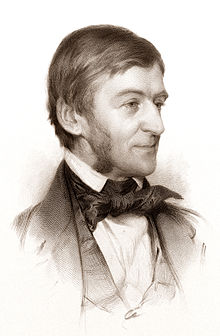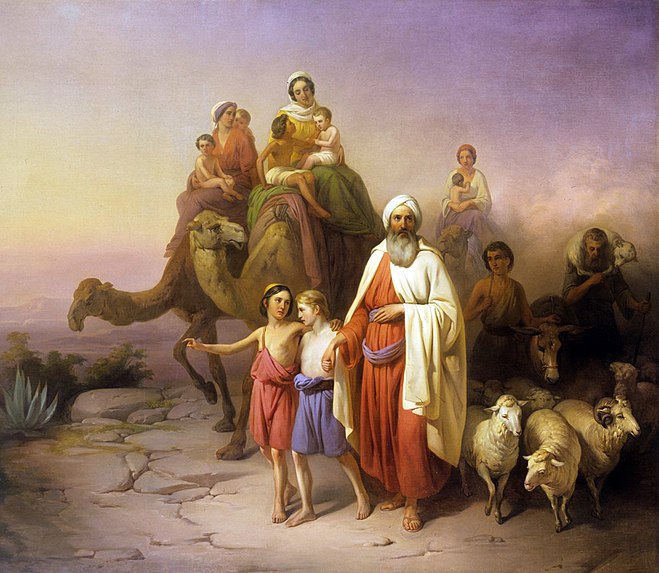“Nick Adams as Johnny Yuma from the television program The Rebel…”
Wikipedia: The first episode was set in early 1867, with Johnny “returning to his hometown nearly two years after the end of the war. His father, Ned Yuma … had been killed by a gang that took control of the town. Dan Blocker of ‘Bonanza’ fame plays the gang leader… ”
Which is being interpreted: Who knew? Hoss as a gang leader?
On that note, consider this from an old Seinfeld:
KRAMER: You go to Tor Eckman… He’s a herbalist, a healer… JERRY: Eckman? I thought he was doing time? KRAMER: No, no, he’s out. He got out. See, the medical establishment, see, they tried to frame him. It’s all politics. But he’s a rebel. JERRY: A rebel? No. Johnny Yuma was a rebel. Eckman is a nut…
 See Seinfeld Scripts – The Heart Attack. Which brings up another note: The only connection between Johnny Yuma and Jerry Seinfeld is that the latter finally gave the former some long-overdue props; “due respect; proper recognition.” But that wasn’t the only Seinfeld homage:
See Seinfeld Scripts – The Heart Attack. Which brings up another note: The only connection between Johnny Yuma and Jerry Seinfeld is that the latter finally gave the former some long-overdue props; “due respect; proper recognition.” But that wasn’t the only Seinfeld homage:
In [another] episode of Seinfeld, Kramer absent-mindedly sings the theme on the phone after he’s put on hold. It might have … been a bit of improv by Michael Richards, an actor old enough to remember when the show starring Nick Adams originally aired.
(See Hell’s Unutterable Lament: Nick Adams was a rebel, which added that the star of the series – Adams – died at the age of 36, in 1968, a mere seven years after the series ended.)
Two points. One is that true rebels tend to die young. (Think James Dean.)
The second is that we’re fascinated by rebels, a term defined at least two ways. One way says a rebel is a person who “refuses allegiance to, resists, or rises in arms against the government or ruler of his or her country.” (Dictionary.com.) The alternate definition – and by far the more popular these days – is of a “person who stands up for their own personal opinions despite what anyone else says.” See Urban Dictionary, which added:
It’s all about being an individual and refusing to follow a crowd that forces you to think the same way they do even if it means becoming an outcast to society. True rebels know who they are and do not compromise their individuality…
 You may think all this is something new under the sun, or just the province of beatniks and other weirdos. But consider Ralph Waldo Emerson (at left), and what he said some 174 years ago: “Whoso would be a man, must be a nonconformist…” (See also “I pity the fool!”)
You may think all this is something new under the sun, or just the province of beatniks and other weirdos. But consider Ralph Waldo Emerson (at left), and what he said some 174 years ago: “Whoso would be a man, must be a nonconformist…” (See also “I pity the fool!”)
But we digress. (Sort of.) We were talking about Johnny Yuma, as a rebel who finally got some due recognition from Seinfeld some 35 years after Nick Adams’ TV series ended. And as noted in Hell’s Unutterable, above: “It helps that the theme was sung by Johnny Cash, a bonafide music legend…”
(For a “live” performance see Johnny Cash “The Rebel” – YouTube.)
As the lyrics noted, Johnny Yuma roamed through the west, wandering alone. He had a dream he’d hold until “his dyin’ breath.” He would continue on, roaming, searching his soul and gambling with death, ever restless. He lived by his wits, and his speed handling a sidearm – he was “panther quick and leather tough.” And finally, the key phrase: he “figured that he’d been pushed enough.” (See JOHNNY CASH LYRICS – The Rebel-Johnny Yuma.)
Which brings up protest songs in general. (They’ve also been around for a long time):
The tradition of protest songs in the United States is a long one that dates back to the 18th century and colonial period, the American Revolutionary War and its aftermath. In the 19th century topical subjects for protest in song included abolition, slavery, poverty, and the Civil War amongst other subjects. In the 20th century civil liberties, civil rights, women’s rights, economic injustice, politics and war were among the popular subjects for protest in song. In the 21st century the long tradition continues…
See Protest songs in the United States. Which brings up the natural question: What’s all this protest about? “What’s all the hubbub, bub?” Don’t we live in the greatest country in the world? Shouldn’t we be happy with we have? Shouldn’t we respect “law and order?”
Well, yeah… But the problem seems to be that a desire for “law and order” tends to degenerate into a sense of complacence, if not arrogance. Or maybe it’s just a matter of “getting old…”
Then there’s the fact that some political candidates – for example – “exaggerate or even manufacture a problem with law and order … to generate public support.” And finally that law and order expression sometimes carries with it “the implication of arbitrary or unnecessary law enforcement, or excessive use of police powers.”
And speaking of arbitrary law enforcement, see The Rebel | Television Obscurities:
Yuma faced down intolerance, distrust, greed, confusion and revenge. Despite his rebellious nature, Yuma respected law and order and despised abuse of power. He stood up for the weak and downtrodden. He traveled alone and was often forced to work alone because he was the only one willing to stand up to the bad guys. (E.A.)
Which brings up The Establishment. Remember that? Also known as The Man? Either refers to a “dominant group or elite that holds power or authority in a nation.” And either can also be used to describe oppression, and that seemed to be what Johnny Yuma pledged to face down.
The problem is: We Baby-boomers who once protested the Establishment – and who so loved The Rebel TV series – are now the major portion of today’s “dominant group or elite.” And yet – somehow – there’s more than enough intolerance, greed and injustice to go around.
So what happened? Why are injustice, intolerance and greed still here?
Maybe the problem is that people get lazy when they get older. Or maybe they just get tired sooner than they used to. Or maybe – over the years – they lose the drive to correct injustice they had when they were young. Or maybe they just get afraid to push the envelope.
As John Steinbeck put it, many men his age – he was 58 when he wrote Travels with Charley – are constantly told to slow down. And so they “pack their lives in cotton wool, smother their impulses, hood their passions, and gradually retire from their manhood.” And since these older men have “retired,” they want more than anything else to maintain the status quo.
And maybe that’s why we need young people, pains-in-the-butt that they can generally be:
Although the character Adams plays, Johnny Yuma, fought for the South, the designation “reb” goes deeper than this. He is a symbol of rebellious youth – a loner, seeking something to hang his life on, wandering through the [] West of a century ago… I can find parallels for Johnny Yuma’s search for meaning in the slum kid heading out into the streets of the city, aimlessly walking, seeking, or in young David with his slingshot walking toward Goliath..
See The Rebel | Television Obscurities, emphasis added. And once upon a time, we aging Baby-boomers felt the same way, when we were the rebellious youth. See for example “Another brick in the wall,” in which Pink Floyd protested an “out-of-touch education system bent on producing compliant cogs in the societal wheel.”
And now people our age are running the educational system. (See also irony.)
But in the end, maybe it doesn’t have to be that way. Maybe you don’t have to lose your dreams when you get older. And maybe you can even start something totally new under the sun. Think of Abraham, the original patriarch. After all, he was “75 years young” when he left the homeland that he’d lived all his life, and set off for parts unknown.
But Abraham – you see – wasn’t an old geezer…

Abraham, leaving home and showing his “still-youthful vigor…”
The upper image and lead-in caption are courtesy of The Rebel (TV series) – Wikipedia.
The “Seinfeld” image is courtesy of The Heart Attack – WikiSein, the Seinfeld Encyclopedia.
Re: Emerson. See also Self-Reliance – Wikipedia, the free encyclopedia.
Re: “Hubbub, bub?” See the Falling Hare (Bugs Bunny cartoon) – Wikipedia, the free encyclopedia.
Re: “The Man.” Interestingly, the American use of that term with that connotation came first in the Southern U.S. states, where it “came to be applied to any man or any group in a position of authority.” It was only in the 1960’s that “use of this term was expanded to counterculture groups and their battles against authority, such as the Yippies.”
Re: Steinbeck on aging. See “I pity the fool!”
Re: “parts unknown.” The reference is to the Glossary of professional wrestling terms – Wikipedia. The phrase is found under “p,” and refers to a “vague, fictional location. Billing a wrestler as being from ‘Parts Unknown’ (rather than from his real hometown or another actual place) is intended to add to a wrestler’s mystique.”
The lower image is courtesy of Abraham – Wikipedia, the free encyclopedia, with the caption: “A painting of Abraham’s departure by József Molnár.”